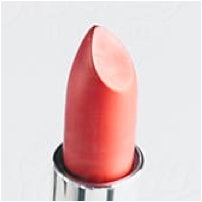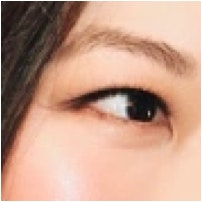Injectable Wrinkle Reducers
Dallas-Fort Worth Plastic Surgeon Steven Camp: “Beauty Is An Experience And A Conscious Choice”
Thespotlyte | August 04, 23
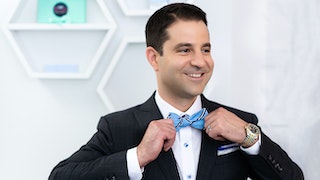
Steve Camp, MD, a board-certified plastic surgeon in Fort Worth, Texas, calls all of his patients “#HappyCAMPers” — and that’s more than just fun wordplay with Dr. Camp’s last name. They make up many of his impressive 10,000 followers on Instagram®, and his before and after photos prove he’s skilled at his craft.
A further dive into the sea of breast augmentation and mommy makeover photos shows that his patients aren’t the only Happy Campers in Fort Worth. Dr. Camp’s feed is filled with funny videos of his staff members dancing in the office hallways or dressing up for a themed event, and seemingly always having a good time.
However, the cutest Happy Campers of them all are Dr. Camp’s family members — wife Sara, daughter Zoe, and son Winston. Your heart will melt after seeing Dr. Camp dancing with his daughter during their ballet performance together and then watching his sweet son randomly complimenting his mommy’s earrings on the @stevencampmd Instagram feed.
Of course, after getting a closer look at the surgeon’s rich personal and professional life, we wanted to learn more about him. Keep reading: In this interview for SpotlyteTM, we got Dr. Camp to share his thoughtful, inspiring answers to questions about plastic surgery, injectables, social media, and even beauty as a concept.
Spotlyte: When you were a little kid, what did you want to be when you grew up? How did you end up becoming a plastic surgeon?
Dr. Steven Camp: At an early age, I was always engaged in working with my hands, especially in sports and drawing. I hoped I would be a shortstop for the Chicago Cubs®, but it turns out I was better in the science lab than on the baseball field. In school, I gravitated toward things that engaged my hands and allowed for creativity. This led to a natural interest in science and medicine which exposed me to early mentorships in high school.
I had the opportunity to rotate with different doctors, and the first time I worked with a surgeon, I was hooked. The energy and excitement of the work was unlike anything else, and I knew I wanted to work with people in that way; using my hands and creativity to [address peoples’ concerns]. At the end of it all, plastic surgery stood out because I could help people look and feel their best. I was solving [issues] with patients with a specific positive purpose, and not because of an unwanted illness.
Spotlyte: Do you have any advice for someone interested in pursuing a career in plastic surgery?
SC: Yes, absolutely seek a mentor, and gain exposure to the field. Learn about the steps needed to become a physician and ultimately a plastic surgeon. I would also encourage any student interested in this field to learn about the patients that a plastic surgeon works with, and find out if seeing these patients matches up with their passion for helping people.
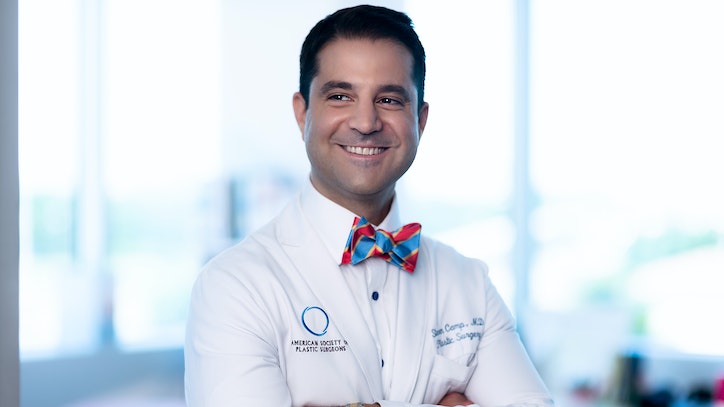
Spotlyte: What is your day-to-day like at the office?
SC: It is a fast-paced, positive-energy environment. Every office day includes a range of patients including new consultations to learn about a specific treatment, and post-surgical patients. A typical day begins early, at about 6:30 a.m., with a review of the patients on the schedule. Then, I will spend a day visiting with patients from 8 a.m. to 5 p.m. After a full day of visiting with patients, I perform a review of the photographs for each patient and complete office records about our visits for another two hours. Finally, once each week, I will review inventory of supplies and equipment, and review our business performance to make sure we are meeting our goals for patient satisfaction and performance of our key procedures.
Spotlyte: What is your favorite type of procedure or treatment to perform on clients?
SC: Picking only one is near impossible, but I love breast enhancement. It is such a powerful procedure with an immediate and noticeable impact on each patient . . . and [it] represents the height of creativity and art in my mind. I love to use the skills of both the artist and the engineer, and I feel like breast surgery provides that opportunity most often. A close second is facelift surgery, which is similar . . . planning, artistic nuance, and finesse to deliver the best result.
Spotlyte: What is the best part about your job?
SC: The best part of my job is working with patients and making a positive impact on their life. Meeting a patient in my office and learning about their reasons to pursue plastic surgery is a unique privilege where we learn about a person’s emotions, vulnerabilities, and dreams. The act of seeking plastic surgery and moving forward with a treatment is very intentional — the ability to create positive changes with surgical and non-surgical treatments and watch the emotional lift it provides is unmatched in medicine. Discussing a treatment plan and making a patient’s vision a shared goal, and then a reality, is an absolute thrill.
Spotlyte: What is the most challenging part?
SC: The most challenging part is understanding when a specific desired surgery or treatment won’t meet a patient’s expectations. Learning when to tell a patient that a certain procedure or treatment won’t help is very hard.
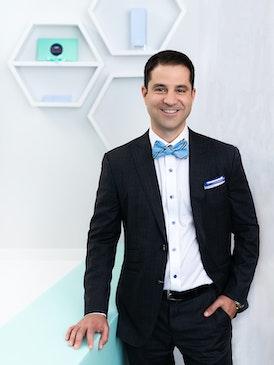
Spotlyte: What’s the most unexpected thing you’ve seen in your practice?
SC: The rise of non-surgical treatments. The ability for us to offer a variety of procedures for the face, body, or skin is truly amazing. We now have a range of in-office treatments with minimal recovery time that can be performed in under an hour. I never would have guessed that we could do these things 10 years ago.
Spotlyte: What are the changes you’ve seen in your practice over the last couple of years? Are you seeing more of a demand for a specific procedure, and less of a demand for another?
SC: I have seen an increased demand for targeted body contouring procedures, like chest and breast contouring, facial contouring, and buttock augmentation. The ability to do these has advanced the results we deliver for patients and driven this demand.
As an example, in my training, procedures like liposuction were common on their own, but now many things have been improved with technology and complementary procedures. I frequently perform fat grafting at the time of procedures to enhance features like the buttocks or chest, and also shape the waist, arms, legs, and abdomen. Additionally, the ability to apply technology that improves skin tone and texture are commonly added, making the procedures more powerful.
Spotlyte: Are there particular treatments or services offered at your practice that you have observed to be more popular in Fort Worth than in other regions? If so, what are they?
SC: I have seen a noticeable uptick in skincare and resurfacing treatments. We live in a region with lots of sun exposure, and this leads to age-related changes, including wrinkles, brown spots, red spots, and loss of skin elasticity. These in-office non-surgical treatments work on correcting these fine wrinkles and improving the skin globally. Most of these treatments are on the face and neck, but I have been surprised by the demand to treat the hands, arms, and chest as well.

Spotlyte: What are your favorite skincare products to use on yourself?
SC: I like the SkinMedica® regiMenTM Essential Skincare System ($225), designed for male skin. I use the facial cleanser both morning and night, and I like it because it is gentle and does not irritate my skin, even post-shaving. I also use the RecalibrateTM for rejuvenation and the HA⁵® [Rejuvenating Hydrator] for hydration morning and night. After I apply first the Recalibrate and then the HA⁵, I let them absorb into my skin and apply Essential Defense Everyday Clear [Broad Spectrum] Sunscreen SPF 47. I reapply the sunscreen if I am going to be in the sun every two to four hours.
Spotlyte: Are there any products you recommend to all your patients? If so, what are they and why?
SC: First and foremost, I recommend a high-quality sunscreen. It is amazing what sun protection can do for your skin. Additionally, I recommend a retinol to help create skin improvements and exfoliation.
Spotlyte: What medical aesthetics treatments have you personally tried?
SC: I have tried injectable wrinkle reducers and non-surgical fat reduction, and I love the results. I do injectable wrinkle reducers every four months, and I have tried non-surgical fat reduction twice.[Editor’s note: Injectable wrinkle reducers are used to temporarily smooth the look of moderate to severe wrinkles in certain areas of the face such as the forehead, frown lines, and crow’s feet. They should not be used more frequently than every three months. Like any medical treatment, they have potential risks and side effects. Be sure to talk to a licensed provider to see if they’re right for you. Have more questions? Chat with our team of trained aesthetics specialists now.]

Spotlyte: What are common misconceptions about injectables?
SC: The biggest misconception I encounter is from patients who fear that they will have an unnatural or overdone look. When we visit with our patients and share our results, we show how we strive to not create artificial[-looking] results. Additionally, patients may worry that the injections are painful, but we have very deliberate techniques that optimize comfort and we review those with our patients.
Spotlyte: What advice do you have for someone who is interested in getting injectables for the first time?
SC: Start with a specific area that is a concern for you, and be open about receiving treatment. Find a reputable injection specialist, and verbalize your concerns, but also be receptive to the advice provided.
Spotlyte: You are very active on social media — what do you like about social media, and how has it affected plastic surgery today?
SC: What I love about social media is that it’s fluid, entertaining, and impactful. I find myself connected to people I would have never met in my office or other medical settings. My engagement with social media makes me more creative and in-tune with myself. [Through social media], anyone can watch me do things in surgery, watch me talk with patients and friends, or play with my kids. People get to know me, and I am OK with that.
At the end of the day, my biggest requirement for myself is to keep things authentic. We all want to present a positive version of ourselves, and be proud of what we are doing. Being active on social media every day means I am always trying my best, and that is a message I want my patients to believe, and I want my friends and family to see as well.
Spotlyte: What does beauty mean to you?
SC: Beauty is present all around us and we usually recognize it, but sometimes miss it. I think of beauty as an experience, and a conscious choice. In our world of comparison to others, beauty gets misrepresented as a collection of certain physical features and being stuck on looking like a certain celebrity sometimes. Beautiful things are in balance or harmony.
With specific objects like buildings, cars, or accessories like jewels, we all appreciate certain things as beautiful and there is some variation in that — the same is true in people. While certain physical attributes are common in beautiful people or things, it is balance and harmony that usually will resonate and make it beautiful. This is why we have all heard the phrase that “Beauty is in the eye of the beholder.”
Spotlyte: You have a young daughter and son — what do you want to teach them about beauty?
SC: With respect to my family, and specifically, my daughter and son, I want to teach them that beauty is about appreciation. I want my kids to recognize their own beauty, to feel confident about that beauty, and appreciate themselves and appreciate others.
In the world of plastic surgery, we are often viewed as experts on beauty. We study images of classic beauty and how to recreate and shape things in the most harmonious and natural way. What I do as a plastic surgeon has something to do with understanding components of classic beauty, but more than that, I think my job is to help people feel confident and free, and appreciate themselves and all that is around them.
Spotlyte: If you weren’t a plastic surgeon, what would you be doing instead?
SC: I think I would be a winemaker. As I have learned more about the process of what makes me tick and what I like doing, it is — without question — working with my hands and thinking creatively. I would have found my way out in the dirt learning about wine. Much like what I do now, I would always be moving, thinking, and working to create something beautiful.



